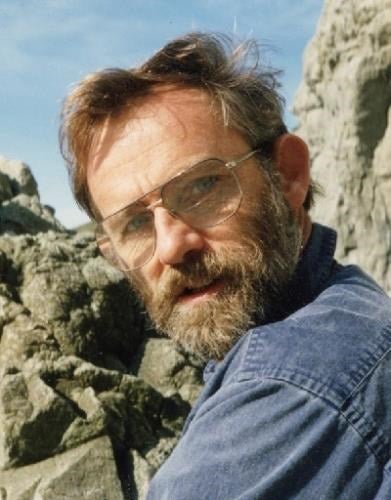Remembering Steve McCarthy
In his 15 years as a trustee, Steve brought energy, curiosity, a love of vigorous debate, and a focus on ultimate goals to Earthjustice's board.

This page was published 2 years ago. Find the latest on Earthjustice’s work.
Those who served on the board or staff of Earthjustice in the 1990s and early 2000s will vividly remember Steve McCarthy, a trustee for 15 years starting in 1990. Sadly, Steve passed away in January 2023 from Parkinson’s disease. A memorial service was held at his alma mater, Reed College, on whose board he also served, in April — appropriately, on Earth Day — where speakers highlighted his lifelong interest in the environment and his devotion to Reed and Earthjustice.
Steve was born in 1943, the first of four sons of his businessman father and Kate McCarthy, who became a near legendary figure in fighting to implement Oregon’s pioneering land use planning laws and protecting farm and forest lands in the Hood River Valley. Steve attended Reed College and then New York University law school. Following law school he worked for New York mayor John Lindsay and then returned to Oregon, where he worked with another liberal Republican, Oregon governor Tom McCall.
Influenced by his acquaintance with Ralph Nader (whom he later tried to talk out of running for president), Steve in 1970 became the first executive director of Oregon Student Public Interest Research Group. With the mission of channeling student idealism into political action, OSPIRG was one of the first state-based groups inspired by Nader in talks he gave around the country. At OSPIRG Steve continued his activism on behalf of two of Oregon’s conservation causes at the time, the fight to save the French Pete area of the Three Sisters Wilderness and the shoddy development that was eating up the Oregon Coast.
In 1973 McCall appointed Steve to the board of TriMet, the newly created transportation district charged with providing public transportation and developing a transportation master plan for the greater Portland area. Steve soon moved into the general manager position, where for five years he incurred both praise and wrath from people who intensely liked or disliked his visionary use of transportation planning not simply to provide alternatives to cars but to reduce air pollution and shape land use patterns for decades to come.
Steve had left TriMet and was trying his hand in the business world when, in the late 1980s, Earthjustice (then Sierra Club Legal Defense Fund) launched what became known as the spotted owl litigation to protect the remaining old-growth forests of the Pacific Northwest. We were being attacked by the press, politicians, and business leaders in the region, and executive director Rick Sutherland wanted to add a board member in Oregon to help defend us. He had never met Steve, but they immediately hit it off, and in 1990 Steve joined the board.
Steve’s board tenure was marked by the characteristics he brought to everything he did — intense energy, curiosity, an ability to focus, a love of vigorous debate, and a steady eye on ultimate goals. He was devoted to Earthjustice’s practical enforcement approach, not only to save particular places and species but to force deeper changes in how we manage and protect the planet.
Nationally, and even internationally, Steve was best known as the founder and builder of Clear Creek Distillery, a maker of pear, other eaux-de-vie and single malt whiskey. Although it was ultimately a highly successful commercial enterprise, Clear Creek was born of Steve’s larger interest in providing markets that would allow his and other families to preserve their own farming and farmland, his curiosity about the science and art of making distilled spirits, and his attention to detail.
Even after he left the Earthjustice board Steve continued to be a strong supporter of the organization. He also backed progressive politicians at the local and national level, and he was not hesitant to hold their feet to the fire when hard decisions had to be made. Among the last efforts in which he played an active, behind-the-scenes role was the successful campaign to permanently protect the Elliott State Forest, 82,000 acres of publicly owned timberland in Oregon’s Coast Range.
Steve is survived by his wife, the Northwest artist Lucinda Parker, and their daughter, Abigail, a research biologist with NOAA’s Alaska Fisheries Science Center.